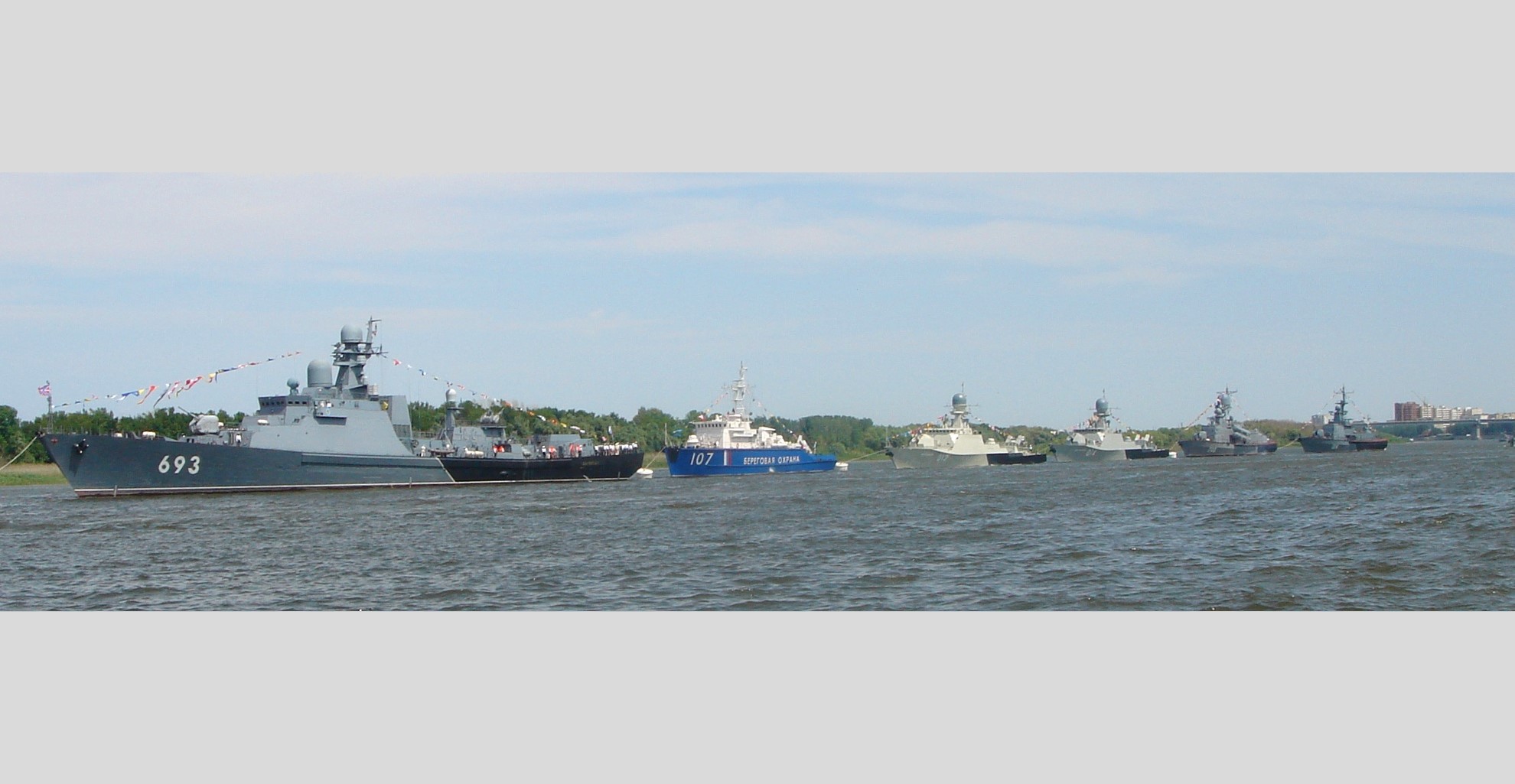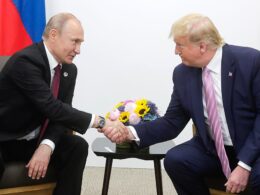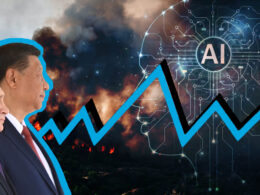A new multi-country global poll by the European Council on Foreign Relations suggests that Russia’s war on Ukraine has consolidated the West.
The poll took place in December 2022 and January 2023 in nine EU countries and Great Britain, and in China, India, Turkiye, Russia, and the US. Its results suggest that Russia’s aggression in Ukraine "marks both the consolidation of the West and the emergence of the long-heralded post-Western international order."
While Russia’s invasion of Ukraine is an event of global significance, people in different parts of the world have experienced and interpreted it in diverse ways, the European Council on Foreign Relations suggests based on the analysis of global public opinion following one year of Russia's war on Ukraine.
The war in Ukraine is a turning point in world history, the authors of the analysis by the European Council on Foreign Relations stressed. Russia's unprovoked invasion of Ukraine has challenged Europeans’ most basic assumptions about their security, brought the specter of nuclear confrontation back to the European continent, and disrupted the global economy, leaving energy and food crises in its wake.
The key findings of the poll indicate that a year since Russia’s war on Ukraine began, the US and its European allies have regained their unity and sense of purpose. But the study also reveals a wide gap between the West and the ‘rest’ when it comes to their desired outcomes for the war and differing understandings of why the US and Europe support Ukraine.
5 reasons why Russia’s war is to conquer Ukraine, not defend itself from NATO
The new consensus among European governments is that only a Ukrainian victory will stop Putin’s war. Although significant numbers of European citizens still wish the war to cease as soon as possible, the poll appears to show a clear trend over the last year towards preferring Ukraine to win even if the conflict endures some time longer. Americans similarly believe that Ukraine must regain its territory if lasting peace is to be secured.
In contrast, people in non-Western countries want the war to end now at any cost, even if it means Ukraine will have to give up territory. In China, the majority of respondents (42 percent) agree that the Russian war on Ukraine needs to stop as soon as possible, even if it means Ukraine giving control of the occupied territories to Russia. Likewise, the majority of people in Turkiye (48 percent) and India (54 percent) want the war to end as soon as possible, even if it means Ukraine will have to concede its territories to Russia. However, almost a third of people in Turkiye and India would prefer Ukraine to regain all of its territories, even if it means a long war or more Ukrainians being killed and displaced.
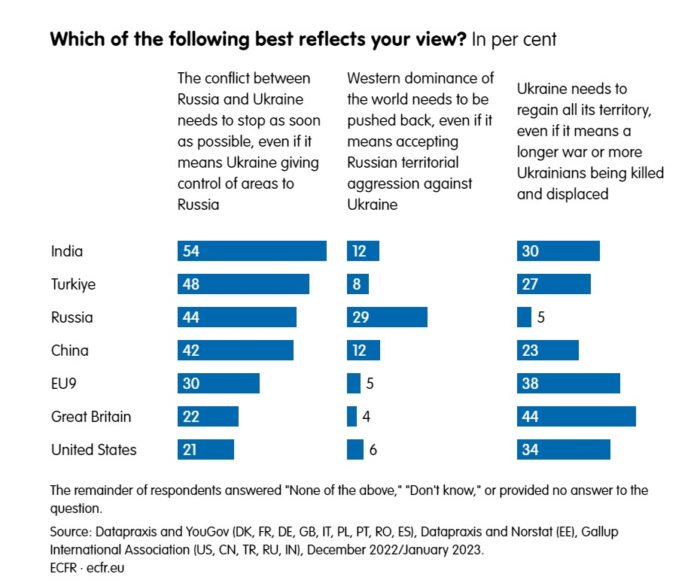
Credit: ecfr.eu
The majority of Americans and Europeans believe that Russia is an “adversary” or a rival: 71 percent of respondents in the US, 77 percent in the UK, and 65 percent in the EU countries regard the future of relations with Russia as one of confrontation. On the other hand, 51 percent of people in India and 35 percent of people in China consider Russia to be an ally for their countries.
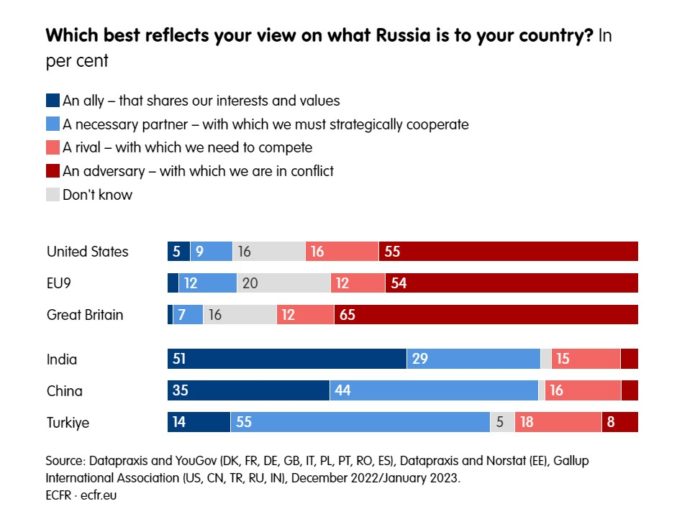
Credit: ecfr.eu
The majority of Europeans prefer not to buy Russian fossil fuels even if it results in energy supply problems. This is the prevailing view in every one of the nine EU countries polled, with an average of 55 percent of people in these countries supporting it. By contrast, just 24 percent of people in nine EU countries favour continuing to buy energy supplies from Russia.
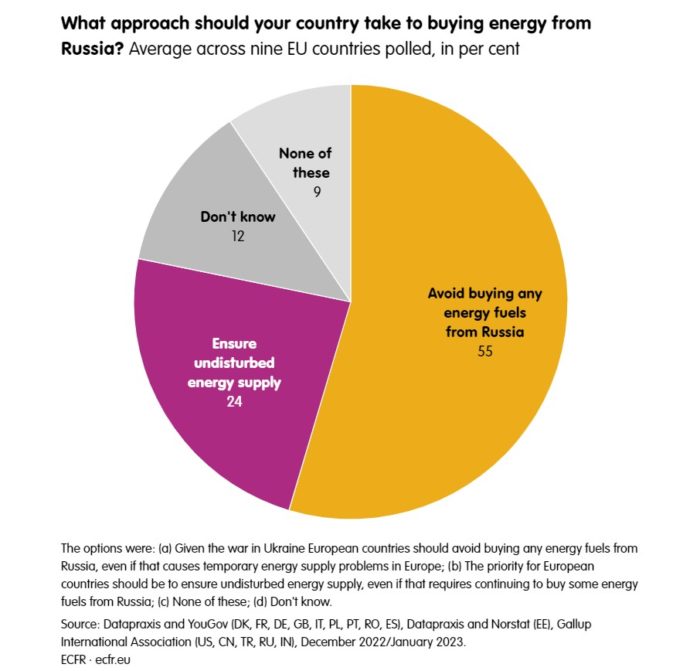
Credit: ecfr.eu
People in the West and the rest of the world are divided when asked about the main reason why the United States, the UK and the EU support Ukraine.
President Joe Biden has framed the war as a struggle between democracy and authoritarianism, and he has sought to use the defence of democracy as a rallying cry at home and abroad. In the US, the language of leadership of “the free world
” has returned.
While Western figures may depict the conflict in these ways to unify the West, many people outside the West believe that the war in Ukraine is not about democracy, but rather about the attempt of the West to defend its dominance.
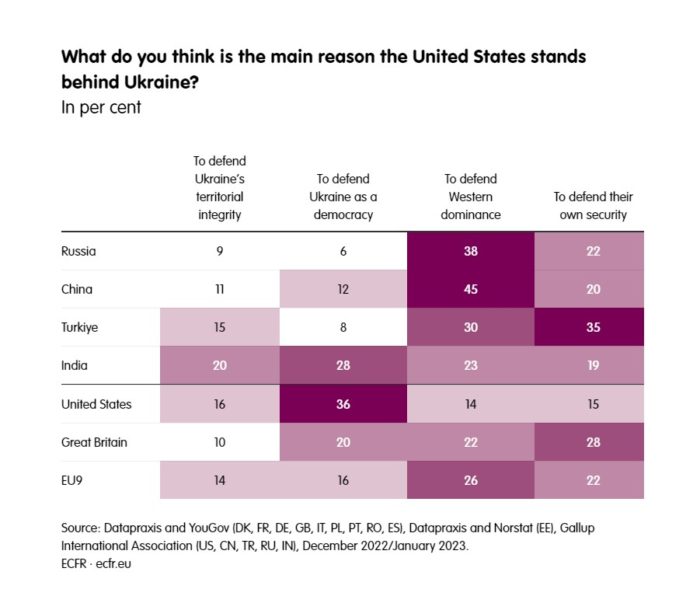
Credit: ecfr.eu
The majority of people in Russia, China and India believe that the European Union and the UK support Ukraine for the same reason as the US: in order to defend Western dominance.
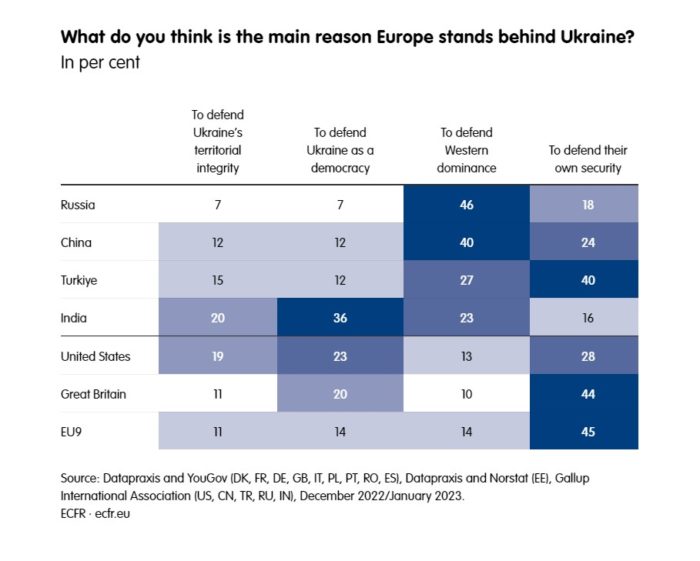
Credit: ecfr.eu
Finally, the survey shows that ideas about the future world order are strikingly different within and beyond the West. While in Europe and America, the prevailing view is that the coming world order will most likely be defined by two blocs led respectively by the US and China, outside the West the majority of people tend to believe that a multipolar world order is emerging.
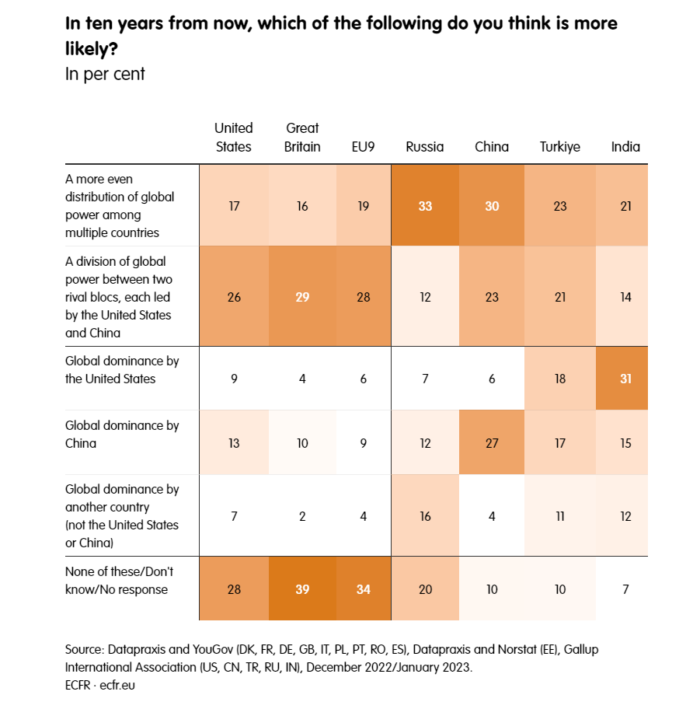
Credit: ecfr.eu
Key takeaways of the poll, according to the authors of the research by the European Council on Foreign Relations:
- Russia’s war on Ukraine has consolidated ‘the West;’ European and American citizens hold many views in common about major global questions.
- Europeans and Americans agree they should help Ukraine to win, that Russia is their avowed adversary, and that the coming global order will most likely be defined by two blocs led respectively by the US and China.
- In contrast, citizens in China, India, and Turkiye prefer a quick end to the war even if Ukraine has to concede territory.
- People in these non-Western countries, and in Russia, also consider the emergence of a multipolar world order to be more probable than a bipolar arrangement.
- Western decision-makers should take into account that the consolidation of the West is taking place in an increasingly divided post-Western world; and that emerging powers such as India and Turkiye will act on their own terms and resist being caught in a battle between America and China.
The research is based on a public opinion poll of adult populations (aged 18 and over) conducted in late December 2022 and early January 2023 in ten European countries (Denmark, Estonia, France, Germany, Great Britain, Italy, Poland, Portugal, Romania, and Spain), and in five countries outside Europe (China, India, Turkiye, Russia, and the United States). The total number of respondents was 19,765 people.
Related:
- Record-high 86% of Ukrainians support country's accession to NATO, poll shows
- 65% of EU citizens back military support for Ukraine - poll
- Russia's war has displaced two-thirds of Ukrainians in hostilities-affected areas - poll
- 89% of Ukrainians want to keep fighting even after Russian nuclear strike


